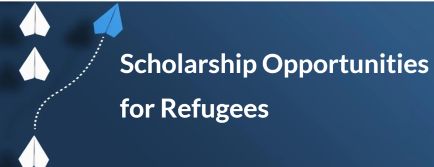In a world where over 110 million people are displaced due to conflict, persecution, and disaster, access to higher education remains a distant dream for many talented students. The Columbia University Scholarship for Displaced Students (CUSDS) stands as a beacon of hope, offering a pathway to academic excellence and a brighter future. Launched in 2016 as the Syrian Displaced Persons Scholarship by Columbia Business School’s Tamer Center for Social Enterprise, it evolved into a university-wide initiative in 2019 under Columbia Global Centers. This groundbreaking program, the first of its kind globally, aims to reframe the narrative around displaced individuals—from perceived burdens to recognized contributors to society.
The Purpose and Impact of CUSDS
CUSDS addresses the humanitarian and economic toll of displacement by enabling students to complete their undergraduate or graduate degrees at Columbia University, one of the world’s premier institutions. With a commitment of up to $6 million per cohort, the scholarship supports up to 30 students annually across all 19 Columbia schools and affiliates, including Columbia College, Engineering, Business School, and the School of International and Public Affairs. Since its inception, it has empowered over 50 recipients from 25 countries, fostering innovation, leadership, and resilience.
Recipients like Ronak Elias, an Iraqi Yazidi who fled ISIS genocide, credit the scholarship with transforming their lives. “Amidst all the chaos and uncertainty of my life in Iraq, this scholarship was the only light I could see at the end of the tunnel,” Elias shared while pursuing a double major in computer science and psychology at Columbia’s School of General Studies. Similarly, Syrian alumnus Sami Salloum and Ukrainian scholar Tanya, who launched a mentorship program for war-disrupted youth, highlight how CUSDS not only funds education but also builds community and purpose.
Read More
- NIBS Fees Structure 2025: Courses, Costs, Application Guide, and FAQs
- Best Colleges for Modeling and Fashion Enthusiasts
- What Is a PWI School? A Guide to Predominantly White Institutions
- Nigeria FG Unveils ₦50 Million Grant to Empower STEMM Students
- How to Get Into Politics With No Experience: Practical Steps to Start Your Political Career
Eligibility Criteria for the Columbia University Scholarship for Displaced Students
CUSDS is open to foreign nationals whose education has been interrupted by displacement. Key qualifications include:
- Refugee Status: Recognized refugees living anywhere in the world.
- U.S. Asylum Seekers: Those granted asylum or with a pending application.
- Temporary Protected Status (TPS): Individuals in the U.S. under TPS.
- Internally Displaced Persons (IDPs): Those displaced within their home countries.
- Special Provisions: Displaced Afghan students on Humanitarian Parole or Special Immigrant Visas are eligible.
U.S. permanent residents, green card holders, and citizens are not eligible. There are no age restrictions, making it accessible to non-traditional students. Applicants must demonstrate academic potential, even if transcripts are incomplete due to displacement—alternative proofs like personal statements or mentor recommendations suffice. Dual-degree programmes are ineligible, and selection emphasises holistic factors: intellectual curiosity, resilience, and community impact.
Application Process
Applying to CUSDS involves a two-step journey, aligning with Columbia’s rigorous admissions standards. First, candidates must apply directly to a participating Columbia degree programme via the school’s portal (e.g., Common App for undergraduates or programme-specific systems for graduates). Deadlines vary: Early Decision for undergrads is November 1, 2025; Regular Decision is January 1, 2026; graduate programmes range from January to February 2026.
Once submitted, applicants receive a Columbia application ID. This ID is entered into the CUSDS online form, available at the Columbia Global Centers website, due no later than the degree programme’s deadline. The scholarship form requires:
- Personal statement detailing displacement experiences and academic goals.
- Proof of displacement status (e.g., UNHCR documents, asylum papers).
- Updated resume, recommendations, and any available academic records.
- Optional: Fee waiver request for extraordinary circumstances, emailed to CUSDS@columbia.edu at least two weeks prior.
The process is competitive—admission to Columbia does not guarantee funding. A university-wide committee reviews applications holistically, prioritising those unable to continue studies elsewhere. For 2025-2026, the cycle opened in fall 2025; check globalcenters.columbia.edu/CUSDS for updates.
Benefits and Support
CUSDS is fully funded, covering full tuition for the degree duration, plus assistance for housing, living expenses, health insurance, and travel. Exact non-tuition support varies by school but ensures recipients focus on studies without financial strain. Beyond finances, scholars receive dedicated mentoring from Columbia faculty, alumni, and peer networks, including student groups like the International Students and Scholars Office. This holistic support extends to career guidance, internships, and psychological resources, helping alumni like Elias thrive post-graduation.
Challenges and Future Outlook
While transformative, CUSDS faces hurdles: limited spots amid rising global displacement (now over 120 million per UNHCR estimates) and bureaucratic visa delays. Yet, its model has inspired similar initiatives worldwide, amplifying Columbia’s commitment to equity. As of October 2025, applications for the next cohort are ongoing, with resources like IIE’s Platform for Education in Emergencies aiding preparation.
For displaced students eyeing Columbia, CUSDS isn’t just aid—it’s empowerment. As one recipient noted, it proves “young people who have suffered need opportunities to rebuild.” To apply or learn more, visit globalcenters.columbia.edu/CUSDS or email CUSDS@columbia.edu. In reclaiming education, these scholars reclaim their futures.
Discover more from Examsabi
Subscribe to get the latest posts sent to your email.










